
(JollofNews)– The long-string of titles of His Excellency, Sheikh Professor Alhaji Dr Yahya AJJ Jammeh Babili Mansa belies his unadulterated love for power.
So, how could a man whose unadulterated love for power graciously concede defeat to a little-known former estate agent, Adama Barrow in the presidential election on 1 December 2016?
How could a man who had survived and foiled several military coup attempts inadvertently stage his own downfall?
Well, I think it all began with Jammeh’s ego-tripping to perpetuate himself in power.
He extended his love for amending his titles to amending the Gambian Constitution and the electoral laws as he wishes. After coming to power through a military coup on 22 July 1994 and then won his first tightly-controlled election two years later, he amended the Constitution to remove the presidential term limit.
He amended it in 2003 to replace the two-round voting system if no candidates have an absolute majority with a one-round voting system, where a candidate can win with a simple majority. The one-round voting system and the simple majority requirement had worked in President Jammeh’s favour in past elections since the opposition had always failed to form a viable coalition to run against him.
To further entrench himself in power, Jammeh allowed the Independent Electoral Commission (IEC) to amend the Electoral laws in 2015 imposing higher fees and an age-limit of 65 years to be eligible to run for the presidency. The opposition accused Jammeh of plotting to create a one-party state with the change. The age-limit was specifically aimed at side-lining his arch rival, Ousainou Darboe, the leader of the main opposition, the United Democratic Party (UDP).
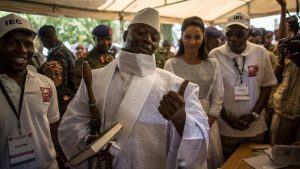
As if the various amendments were not enough, Jammeh allowed the IEC to change the way ballots were counted from a centralised system to on-the-spot counting. The problem with the centralised counting system was that many ballot boxes will only arrive at a counting centre under the cover of darkness, several hours after polls closed at 5pm.
During the transfer of the ballot boxes, anything could happen in President Jammeh’s favour as he was the only one with the means and resources to deploy party agents at every polling station across the country.
Alongside people’s resolve for a change, the high fees for presidential candidate, the age-limit, the-spot counting of ballots and the first-round voting system all contributed towards Jammeh’s downfall.
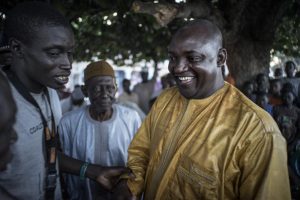
The high fees helped to push the opposition parties to agree to form a viable coalition for the first time. The age-limit forced UDP to replace Darboe, who lost three times to Jammeh, with Barrow. The on-the-spot counting injected some transparency into the election. And were it not for the first-round voting system and simple majority, there would have been a second round given that Barrow won 45.5% of the votes with Yahya and Mama Kandeh (a former member of Jammeh’s party) winning 36.7% and 17.8% respectively.
Notwithstanding, the most surprising element of the outcome of the election was Jammeh’s gracious acceptance of the result. His gracious concession was driven by a combination of factors including the shock result, the subtle diplomatic pressure from the former UN Secretary General Kofi Annan and former Nigerian president Olusegun Obasanjo and Jammeh’s penchant to spring a surprise.
With the departure of Jammeh by end of January 2017 (touch wood and hope that he quickly reaches the last stage of the grieving process before he springs another surprise to contest the results), The Gambia will enter a new era of unchartered territory. As exciting this can be, one must approach it with cautious optimism for a couple of reasons.
Adama Barrow, like Donald Trump, is a businessman with no previous experience in politics. Unlike Donald Trump who was self-motivated to run for the presidency with a view to ‘drain the swamp’ in Washington, Barrow was prevailed upon by the UDP to be the party’s leader. Barrow’s lack of experience and docility will likely make him a pun in the hands of the UDP stalwarts, in particular Darboe, who has just been released from prison, raising the spectre of a politics of vendetta.
After over two decades of Jammeh in power, it will be a huge challenge for the Barrow administration to undo Jammeh’s legacies of tyrannical rule, rampant human rights violations and a ruined economy.
A note of caution to the Barrow administration. If Gambia’s fragile democracy is mismanaged, the newly found freedom in the public and private sectors could unleash massive wave of corruption, hyperinflation (as the currency is overvalued at present), ethnic politics and rising criminality. This will make the Gambian people nostalgically yearn for the days of Jammeh’s tyrannical rule, which was able to impose some form of stability and a subsidised economy, albeit at an astronomical cost.
The author is a Gambian in the UK advising government and corporate entities on commercially-relevant political and security risks

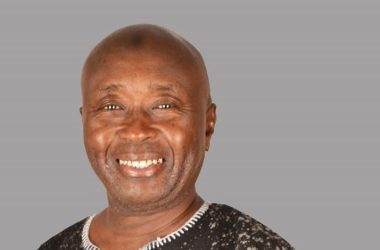
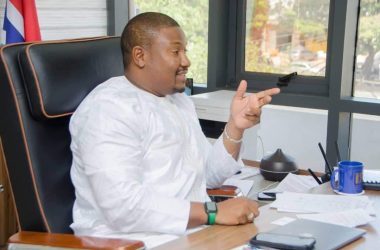
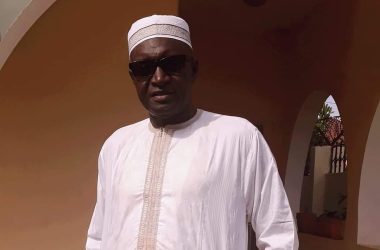

Thanks for the honest advice and you should be listen to.
The president elect ought to be strong and forthright in moving The Gambia forward. The task ahead is not easy. This is no time to form a new government by ‘putting square pegs in round holes’ all in the name of rewarding the united coalition. History have shown in most Africa states that most head of government struggles to develop their countries not because of lack of good intentions and determination but because the are undermined and helpless by nepotism and corruptions perpetuated by ‘ godfather’s who were in coalition to support and help achieve their presidency.